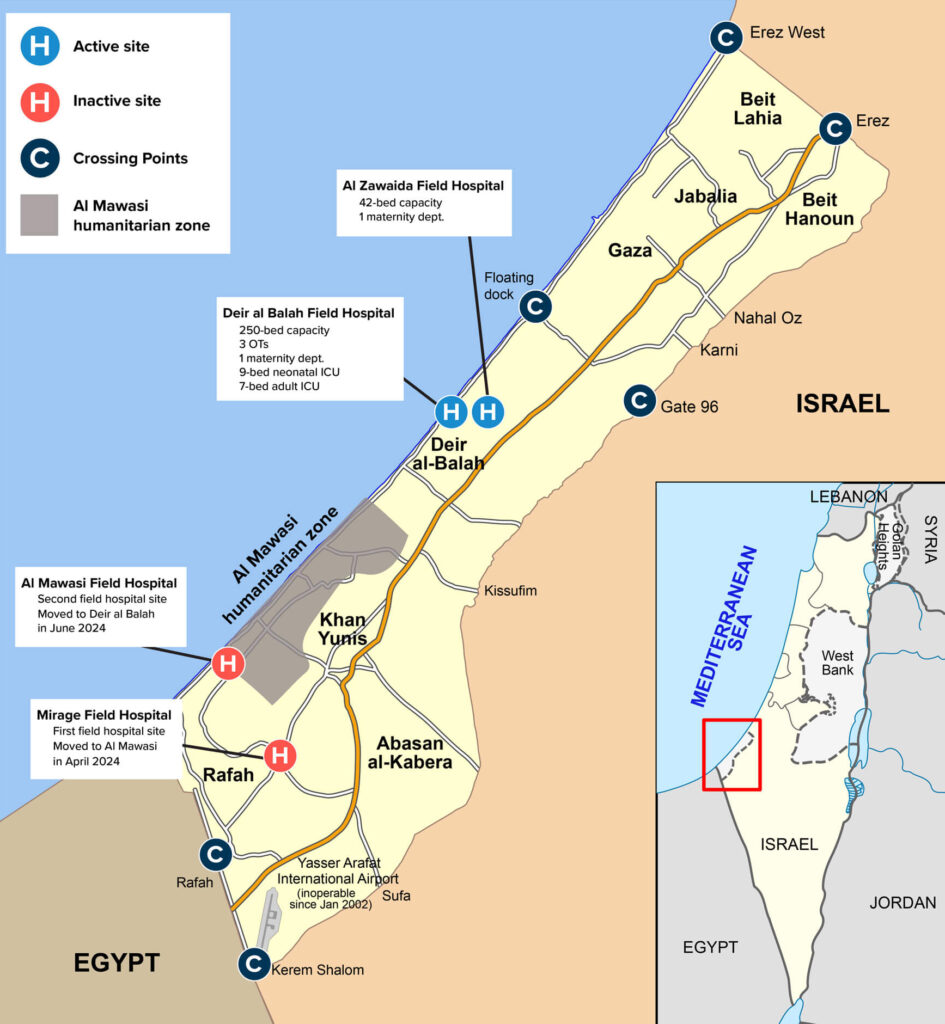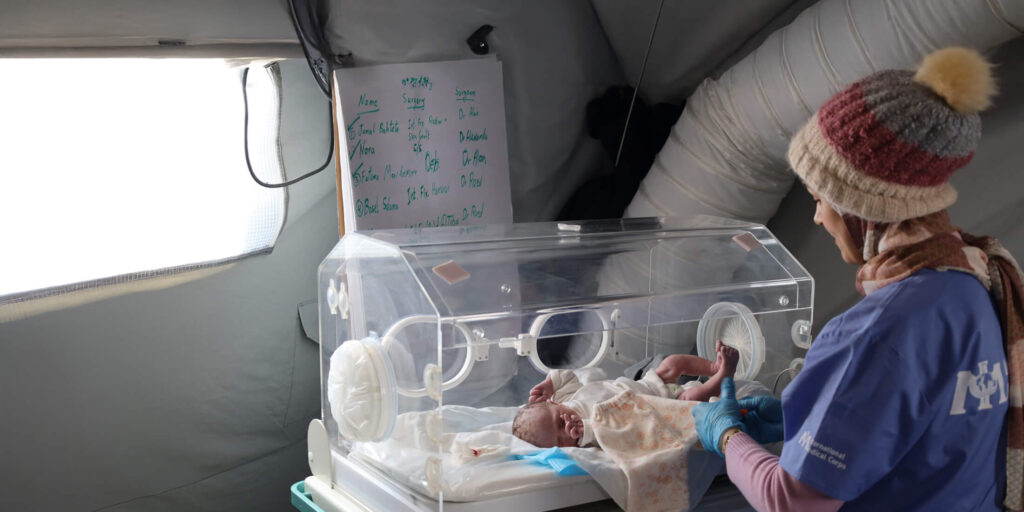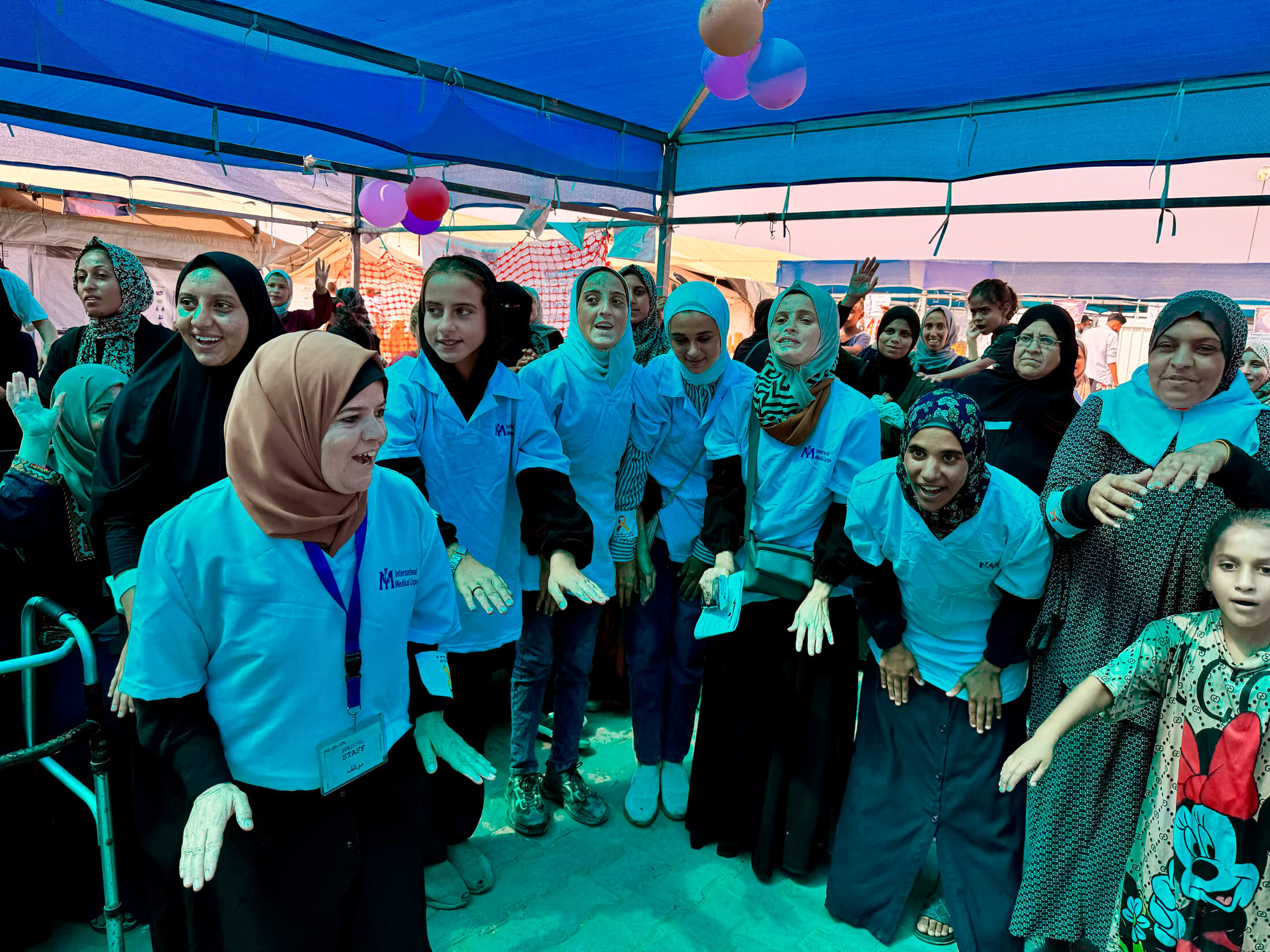Israel
In Israel, where International Medical Corps does not have an operational presence, we are supporting ongoing response and recovery efforts by long-time partner JDC, which is providing health and mental health services to affected communities—with a focus on children, older people and people with disabilities—as well as training first responders and healthcare workers.
Gaza
In Gaza, where we have worked since 2008, International Medical Corps has deployed two state-of-the-art field hospitals—the first in January 2024 and the second in July 2024. The first hospital—which is now located in Deir al Balah, in central Gaza, and has about 200 beds—provides lifesaving surgical care for trauma, physical rehabilitation, comprehensive emergency obstetric and newborn care, nutrition, mental health and psychosocial support (MHPSS), child protection, gender-based violence (GBV) prevention and support, water, sanitation and hygiene services, and more. Our second field hospital—located nearby in Al Zawaida, with about 50 beds—focuses on outpatient and long-term recovery services, but provides other services, too.
International Medical Corps also is supporting polio and other routine immunisation efforts among children and conducting activities in communities to identify other infectious diseases and malnutrition.
Thanks to your support, our field hospitals over the past year have:
- provided 210,275 consultations;
- performed 7,052 surgeries, including major and moderate surgeries, and minor procedures;
- facilitated 2,591 births, including 588 caesarean sections;
- reached 13,233 people with MHPSS;
- screened 70,767 children under the age of 5—identifying and treating cases of moderate acute malnutrition (MAM) and severe acute malnutrition (SAM);
- provided 40,618 people with GBV prevention and response services;
- supported 21,969 children with psychological first aid (PFA), individual counselling and unstructured activities, including drawing, singing, dancing and games—enabling children to explore their emotions in a child-friendly space;
- provided access to safe drinking water to 199,670 people and is producing more than 37,500 litres of clean water per day; and
- procured 184 tons of medicines, medical equipment and supplies.
About Our Field HospitalsOur field hospitals are:
|
Timeline of International Medical Corps’ Field Hospital Operations
As fighting shifts throughout Gaza, the safety of our patients and staff remains International Medical Corps’ top priority. Our field hospitals are strategically composed of modular infrastructure units and tents that can be relocated with relative ease.
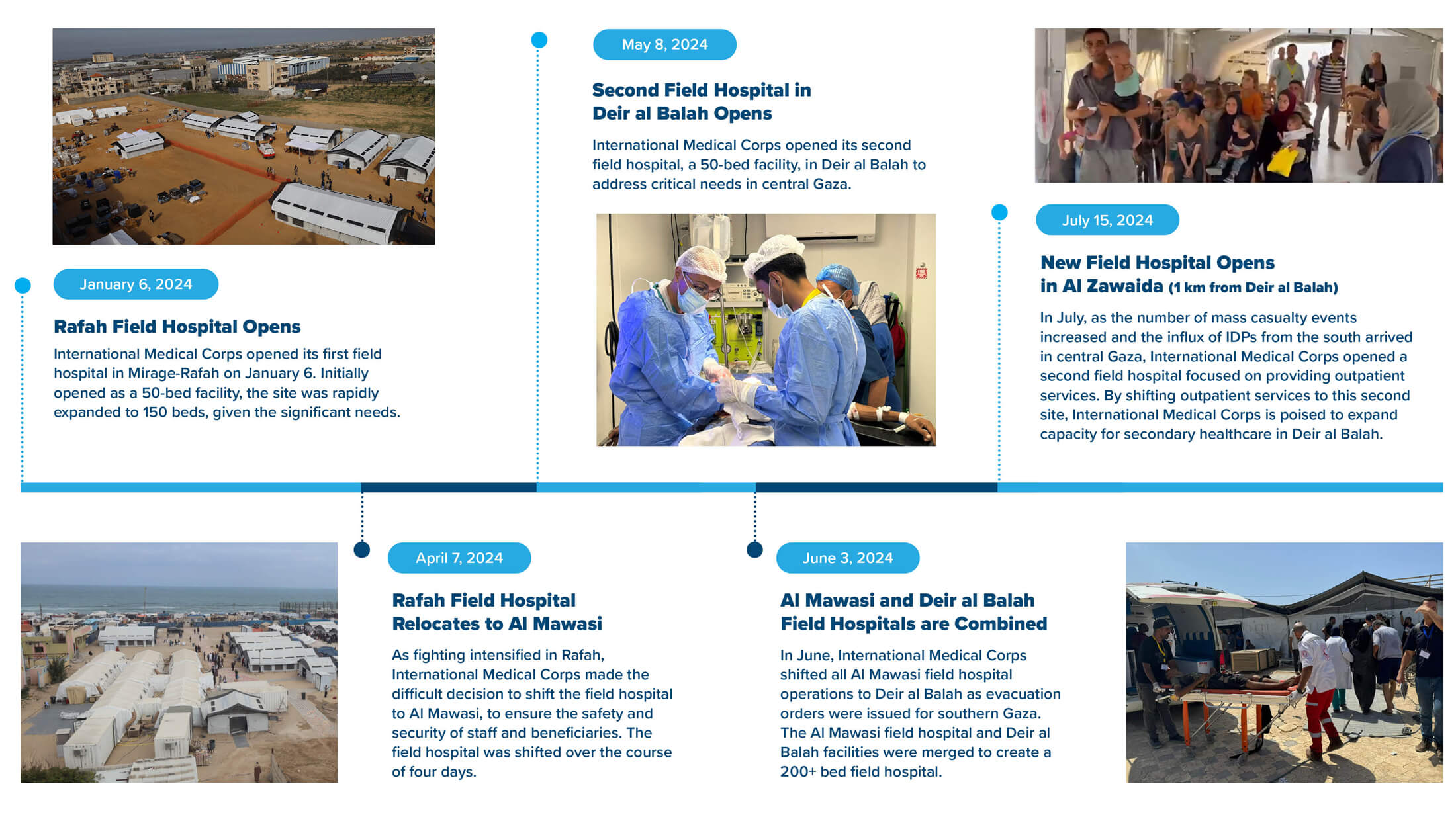
Emergency and Surgical Services
As one of the top trauma-care providers in Gaza, we regularly respond to mass casualty events. Patient numbers can spike dramatically during these events, with daily surgeries sometimes doubling and requiring extensive pre- and post-operative resources. Our Deir al Balah field hospital is fully equipped and staffed with a team of surgical specialists who can stabilize patients, perform delicate, complicated operations, and preserve functionality of injured limbs. So far, we have:
- provided 7,052 surgical and emergency trauma-care consultations;
- performed 2,451 major and minor surgeries;
- delivered 2,591 babies, including 588 through caesarean section; and
- provided inpatient services to 5,761 people, with an average stay of approximately seven days.
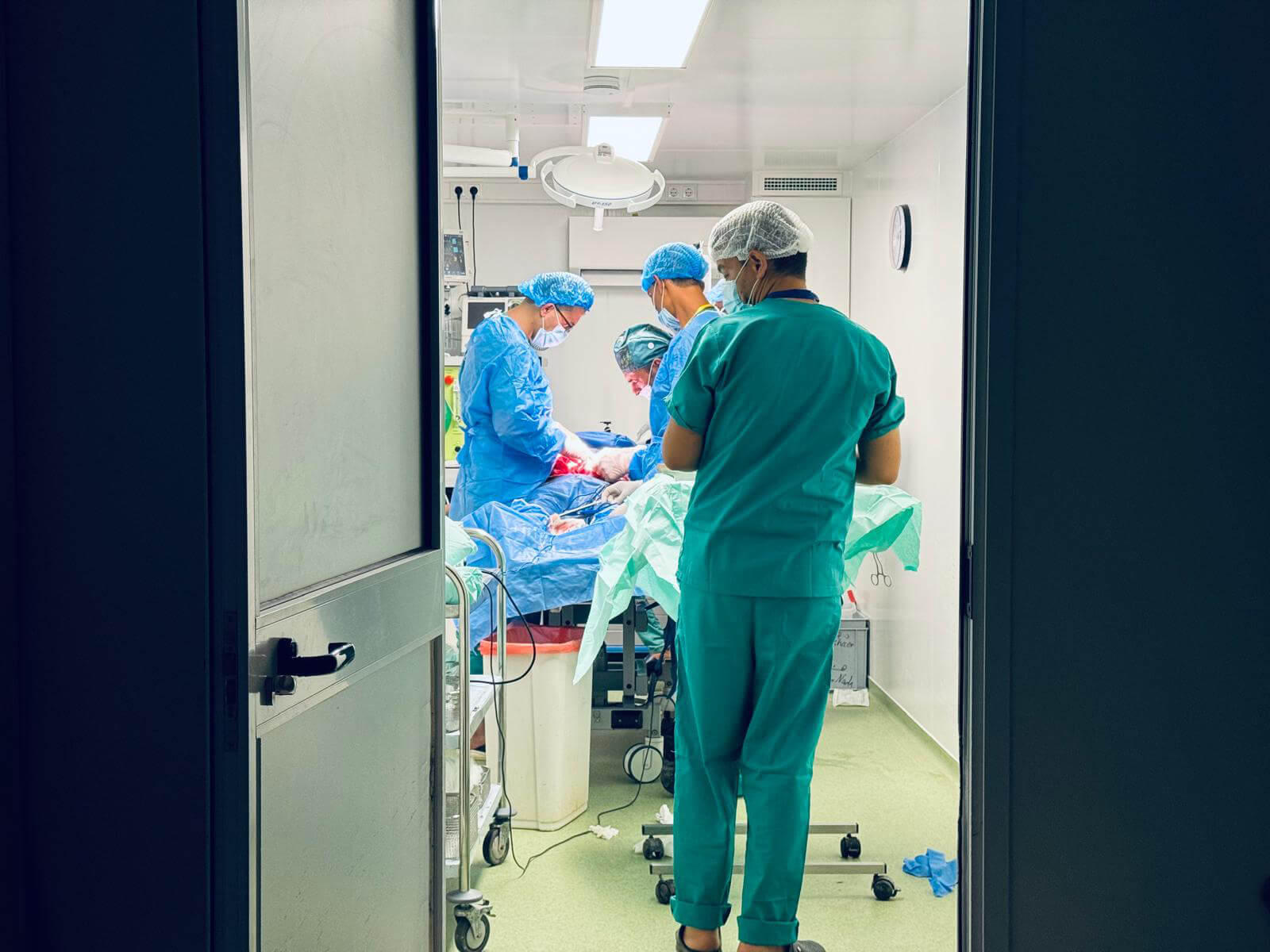
Maternal and Child Health
Even in a stable living environment, pregnant and lactating women (PLWs) and children face increased health risks and require unique care. These risks are severely exacerbated in times of conflict, when access to healthcare, food, water and other basic necessities is scarce. To address these critical needs, we have so far:
- provided ante- and post-natal care consultations to 7,901 pregnant women;
- delivered 2,591 babies, including 588 through caesarean section;
- reached 19,798 people with infant and young-child feeding (IYCF) counselling sessions, with integrated lactation support; and
- provided 17,628 PLWs and children with prophylactic distribution of vitamin A.


Mental Health and Psychosocial Support
The experience of living in a war zone can have a lifelong effect on mental health. To address this growing need, we provide an array of MHPSS services at our field hospitals. So far, we have:
- reached 3,924 adults with PFA services;
- reached 2,179 people through individual mental health counselling sessions;
- hosted group therapy sessions for 758 people; and
- reached 4,084 people through awareness-raising sessions, covering topics such as stress management and dealing with grief.
Child Protection Services
Roughly half of Gaza’s entire population is children. With many children orphaned or separated from their caregivers, the need for protection and MHPSS services among this highly vulnerable group is extremely high. So far, International Medical Corps has:
- hosted 10,039 children in our child-friendly space, where children can socialise and access mental health resources;
- provided PFA to 6,498 children;
- managed care plans for 287 children through our case-management programme;
- reached 4,242 people through awareness-raising sessions for community members; and
- provided individual counselling sessions for 353 children who showed signs of psychological trauma.
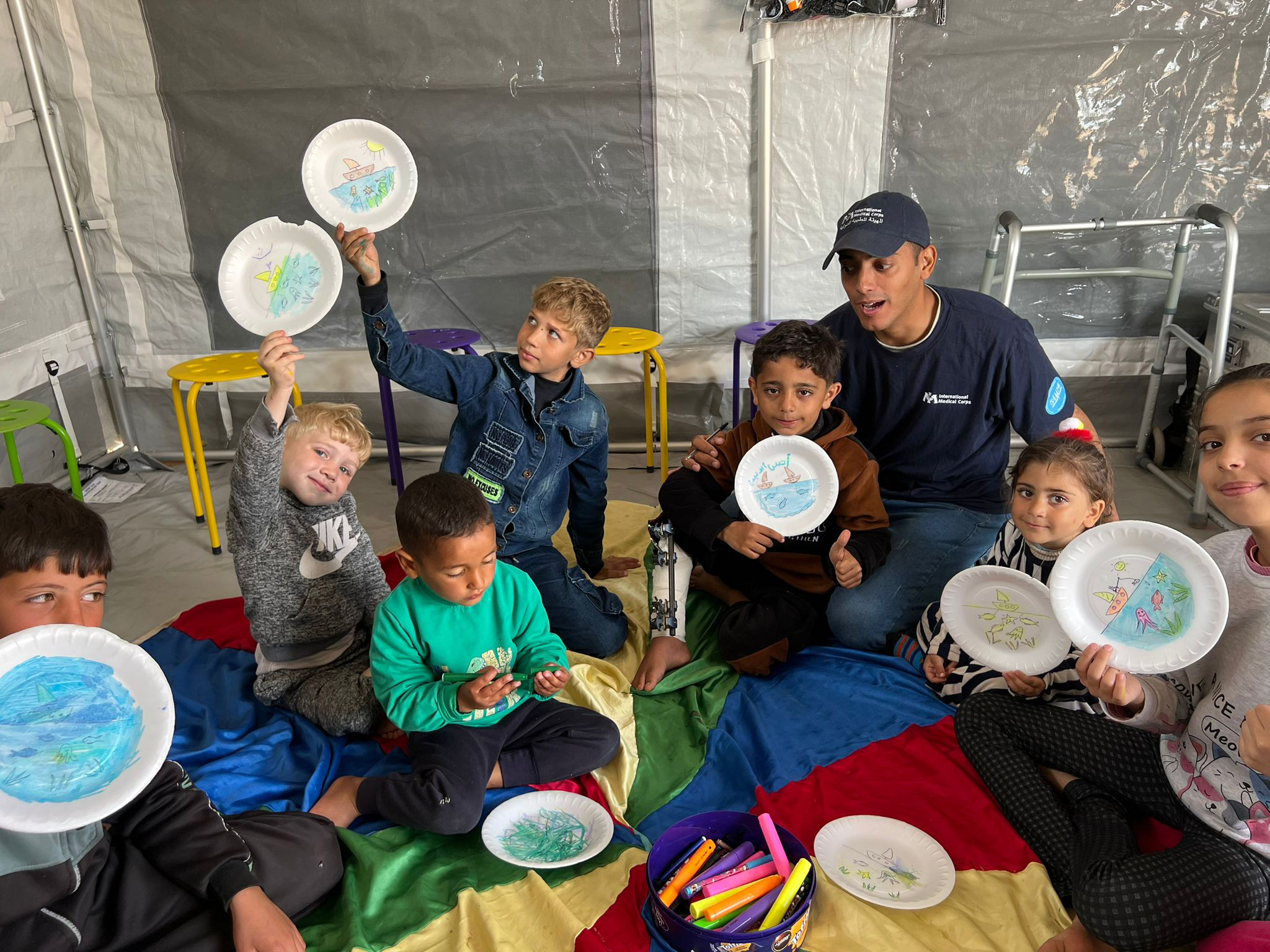
Nutrition Services
Food insecurity in Gaza has reached catastrophic levels. International Medical Corps collaborated with UNICEF and the Gaza Nutrition Cluster to address skyrocketing malnutrition through a comprehensive screening campaign for children under 5 called “Find and Treat.” Under the programme, our community volunteers screened children for malnutrition, provided urgent treatment and enrolled those who required further care in our outpatient therapeutic programme for follow-up care. Through this campaign, as well as through our ongoing general nutrition services, so far we have:
- screened 21,065 children under 5 for malnutrition within our facilities and screened 70,767 children through Find & Treat community screenings;
- identified and treated 1,065 cases of MAM and 452 cases of SAM with ready-to-use therapeutic food and micronutrient supplementation;
- provided 1,399 pregnant and lactating women with micronutrient supplementation;
- provided IYCF counselling services to 10,740 people; and
- provided ready-to-eat meals to 33,979 people.
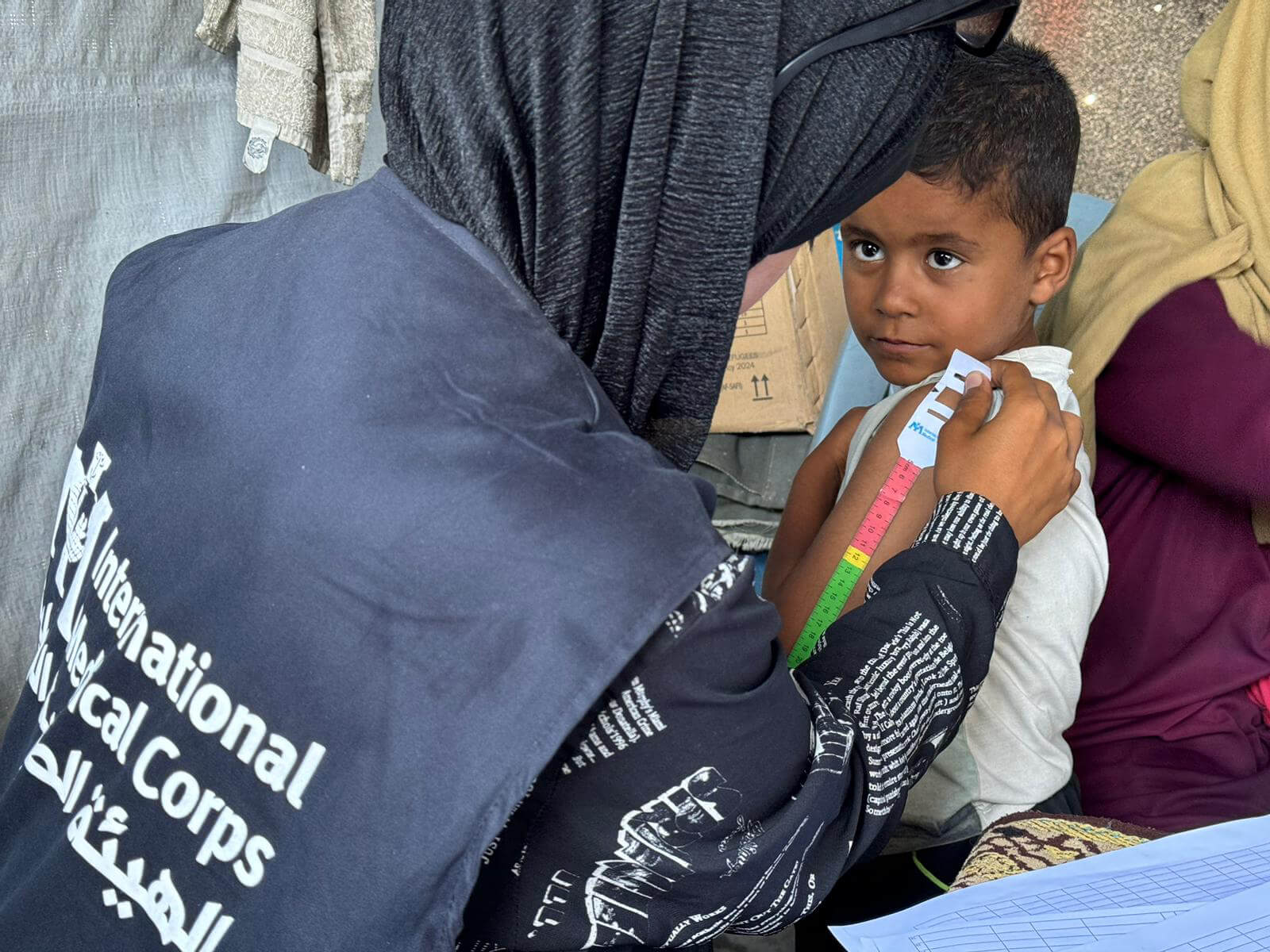
Polio Response
In mid-August, health officials reported the first case of polio in Gaza in more than 25 years. With health and sanitation infrastructure widely destroyed, Gaza continues to be susceptible to an outbreak, and with routine vaccines still largely inaccessible, infants and children are at increased risk of permanent injury or death from polio. To address this surging risk, so far we have:
- worked with the World Health Organization (WHO) to vaccinate 8,776 children under 5 against polio;
- conducted health education and hygiene promotion activities for 106,918 people;
- trained three International Medical Corps doctors as vaccinators through the WHO and UNICEF; and
- begun planning our second major polio vaccination campaign.


Moving Forward
With no immediate end to the conflict in sight, the need for health and related services remains high. International Medical Corps is expanding our field hospital sites to reach as many people in need as possible. We are procuring additional modular infrastructure units to increase the capacity of our current field hospital sites, and reinforcing existing medical access points located throughout central and south Gaza to expand access to routine vaccines for children, and to provide malnutrition screening and disease surveillance.
